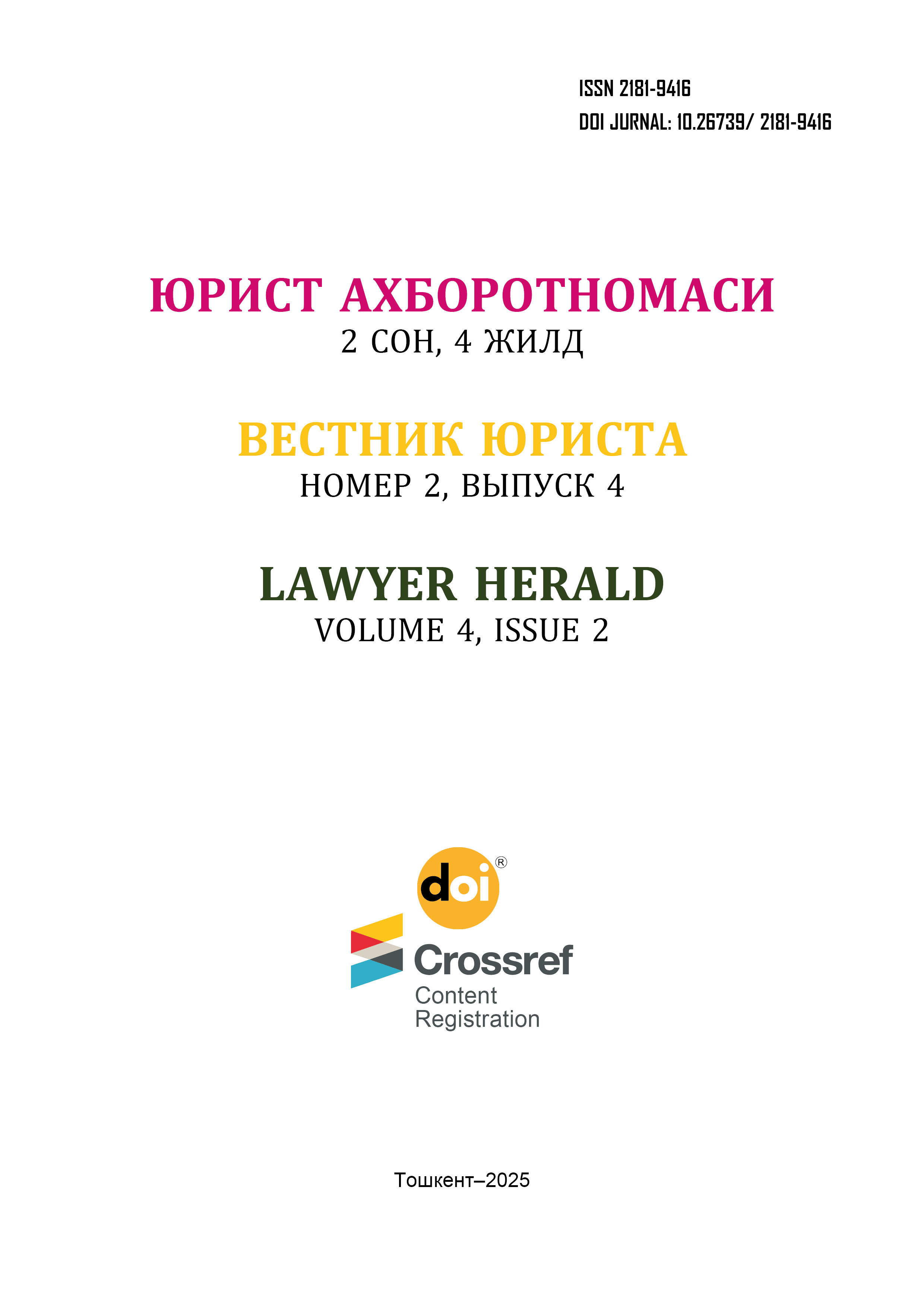Abstract
The article analyzes the importance of ethical rules and ethical standards in preventing conflicts of interest in the activities of civil servants based on the experience of Great Britain. The study highlights the centrality of ethical issues in preventing corruption and conflicts of interest in the activities of civil servants, as well as the effective mechanisms introduced based on comparative analysis. The theoretical views of scientists are classified based on scientific schools and scientifically proven based on practical examples. Based on the theoretical analyses and legislative foundations of the study, proposals and recommendations for preventing conflicts of interest in Uzbekistan are developed. The prospects for introducing the experience of Great Britain in Uzbekistan are discussed.
References
Susan Rose-Ackerman, Corruption and conflicts of interest, in: Jean Bernard Auby / Emmanuel Breen / Thomas Perroud (Eds.), 2016, Corruption and Conflicts of Interest, Studies in Comparative Law and Legal Culture, p. 3.
Stark, Conflict of Interest in American Public Life, Harvard, Cambridge, 2000, p. 4.
Mark D. Jarvis & Paul G. Thomas, 2009, ‘The Limits of Accountability: what can and cannot be accomplished in the Dialectics of Accountability?’ Paper presented at Dalhousie University, Halifax, November 11-13, p. 11.
Mungiu P.A., (2016), The Quest for Good Governance, Cambridge University Press 2016.
https://www.legislation.gov.uk/ukpga/2010/23/contents
https://www.rtpi.org.uk/media/1966/ethics-update-2017.pdf
Peter JOHN, United Kingdom (L, SOC). Congress of Local and Regional Authorities of the Council of Europe in 2018 https://rm.coe.int/booklet-a6-conflicts-of-interest-coll-public-ethic-en/1680907923
https://www.gov.uk/government/publications/civil-service-code/the-civil-service-code
